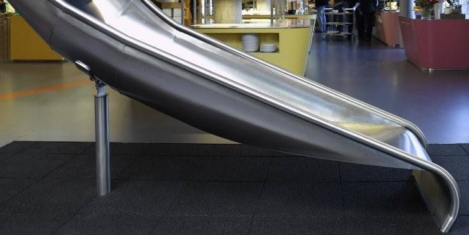August 8, 2017
UK ranks thirty-first worldwide for broadband speeds, claims year long study
 An analysis of over 63 million broadband speeds worldwide carried out by comparison site Cable.co.uk claims that the UK sits in 31st place, with an average speed of 16.51 Mbps. The data was collected for the 12 months up to 10 May this year by M-Lab, a partnership between New America’s Open Technology Institute, Google Open Source Research, Princeton University’s PlanetLab, and other supporting partners, and compiled by Cable.co.uk. The UK manages to beat 158 other countries, yet falls behind 30 others, coming in behind 20 European countries, 17 of which are in the European Union (EU). The five fastest countries have download speeds around 40 times faster than the five slowest. Singapore tops the table at 55.13Mbps, compared to Yemen, which is more than 162 times slower at just 0.34Mbps.
An analysis of over 63 million broadband speeds worldwide carried out by comparison site Cable.co.uk claims that the UK sits in 31st place, with an average speed of 16.51 Mbps. The data was collected for the 12 months up to 10 May this year by M-Lab, a partnership between New America’s Open Technology Institute, Google Open Source Research, Princeton University’s PlanetLab, and other supporting partners, and compiled by Cable.co.uk. The UK manages to beat 158 other countries, yet falls behind 30 others, coming in behind 20 European countries, 17 of which are in the European Union (EU). The five fastest countries have download speeds around 40 times faster than the five slowest. Singapore tops the table at 55.13Mbps, compared to Yemen, which is more than 162 times slower at just 0.34Mbps.






 An increase in the number of UK-born employees leaving the UK’s workforce, either through retirement or emigration is coinciding with a shrinking pool of younger workers, which a fall in immigration can no longer fill, a new report warns. An analysis of the UK’s workforce showed that the UK’s workforce grew in 2016-2017 only because of an increase in EU and non-EU workers.
An increase in the number of UK-born employees leaving the UK’s workforce, either through retirement or emigration is coinciding with a shrinking pool of younger workers, which a fall in immigration can no longer fill, a new report warns. An analysis of the UK’s workforce showed that the UK’s workforce grew in 2016-2017 only because of an increase in EU and non-EU workers. 
















 Commercial property occupiers remain cautious about the future, and hard data indicates that demand has, so far, been largely unaffected by Brexit, claims a new report from the British Council for Offices (BCO) . ‘Brexit and its Potential Impact on Office Demand’, examines how Brexit might impact on demand for office space on a national and regional basis through to 2022. According to the report, almost one year on from the Brexit vote the situation is one of uncertainty, feeding through to slower growth, with ‘an almost palpable sense that choppy waters lie ahead, particularly with regard to trade and movement of labour’. However, businesses continue to make long-term investments in the national economy and even in the City, some large investment banks have committed to large new office buildings. There is much variation in the relative performance of the UK’s major office centres, though, with some expanding and others apparently in decline.
Commercial property occupiers remain cautious about the future, and hard data indicates that demand has, so far, been largely unaffected by Brexit, claims a new report from the British Council for Offices (BCO) . ‘Brexit and its Potential Impact on Office Demand’, examines how Brexit might impact on demand for office space on a national and regional basis through to 2022. According to the report, almost one year on from the Brexit vote the situation is one of uncertainty, feeding through to slower growth, with ‘an almost palpable sense that choppy waters lie ahead, particularly with regard to trade and movement of labour’. However, businesses continue to make long-term investments in the national economy and even in the City, some large investment banks have committed to large new office buildings. There is much variation in the relative performance of the UK’s major office centres, though, with some expanding and others apparently in decline.









August 11, 2017
Reducing the risk of personal gambling becoming a corporate fraud issue
by Andrew Durant • Comment, Workplace
More →